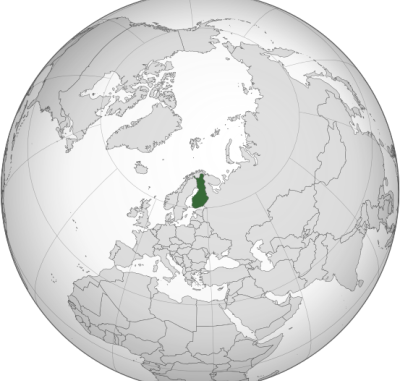
The Social Democrats have been made the biggest party in Finland’s parliament for the first time in 20 years. Looking more deeply, all signs in the 2019 Finnish parliamentary elections point to a working class lacking leadership and desperate for answers.
The story of Finnish politics for the past decade has been of the failure of the left to provide a positive, coherent opposition to the austerity politics of the agrarian Centre party, and the Thatcherite National Coalition parties. Over that time, the Finns Party, a far-right organization with a fascistic leadership, has grown and is now the second-biggest party in the Parliament.
This election has also seen the far right become bolder and more violent. Foreign minister and former Finns Party leader, Timo Soini, and Left Alliance candidate, Suldaan Said Ahmed, were both attacked while campaigning in incidents of a kind of political violence unknown in Finland for decades. The Finns party’s theatrical election advertisement, in which immigrants are depicted as monsters, was banned for inciting violence.
Coalition talks are now likely to be swift, as the leader of the Social Democrats, Ante Rinne, has indicated a willingness to work with almost all parties. In short, this means a continuation, in a milder form, of the austerity and privatization of the past several years. Rinne’s party has promised no fundamental break with neoliberalism or with “reforms” introducing market elements into the public health care system.
Rinne, a former trade union bureaucrat and uncharismatic figure, is likely to play second fiddle in his own government to the “eco-capitalist” Greens’ Pekka Haavisto, and to bow to the Greens’ demands for deregulation and tax cuts.
The Greens have 20 seats (five more than last time) and the Left Alliance has 16 (four more than before). Together they have nearly as many as the Finns (39). The Social Democrats have 40.
Pressures
In these circumstances, Li Andersson’s Left Alliance will come under intense pressure to join a coalition with the Social Democrats, Greens, Centre, and Swedish People’s Party. To do so, on any government programme of further austerity or increased privatization would be an explicit betrayal by Andersson, who became party chair on the strength of opposition to the Left Alliance’s participation in the “six pack” left-right government of 2011-2014.
The leadership of the Left Alliance, heavily bureaucratized, are well-known as supporters of unprincipled coalitions. Left voters want the opposite. Noticeable is how former Left Alliance leader, Paavo Ahrinmäki, champion of the “six pack” and Andersson’s predecessor, was not elected until late into the count as younger, lesser known candidates replaced veterans.
If the Left Alliance endorses austerity, voters will flee it and the far right will become even stronger, with swift, deadly consequences for Finland’s immigrants, LGBT people and left activists.
Joining an unprincipled coalition would not only alienate working class voters but would restrict the Left Alliance’s activity. With the disintegration of the Joukkovoima anti-austerity movement, an enormous space has opened for the establishment of a new, openly socialist campaigning organisation. The need to bring Finland’s massive trade unions into the fight against fascism has not been so urgent since the 1940s.
Next year, most of Finland’s myriad collective bargaining agreements come due for renegotiation. Union members deserve an alternative leadership to the class-collaborationist, business unionism presented by the Social Democrats. This is where any party that claims to be “for everyone, not the few” needs to focus — not on sleepwalking from one election to the next, but on forging the working class into a fighting organization.
This election has made itself into a critical moment for Finland. For the left to surrender to “dented shield” politics and to endorse austerity and its proponents would send Finland down the route of Spain, Italy and Belgium, emboldening the extreme right and setting the working class back.
Sosialistinen Vaihtoehto says:
• Tax the rich to pay for expansion of public healthcare and welfare. No to the Sote privatization of healthcare! No to austerity!
• Bring the unions into the fight against racism and fascism. For a mass socialist anti-fascist coalition!
• Introduce a minimum wage of at least €10 an hour
• Reduce unemployment by shortening the working week with no loss of pay
• Organize for a general strike – make up the lost ground in pay and conditions
• For a mass socialist party of the working class to fight against austerity and for widespread, democratically controlled nationalisation.
• For an end to capitalism!
Special financial appeal to all readers of socialistworld.net |
Support building alternative socialist media Socialistworld.net provides a unique analysis and perspective of world events. Socialistworld.net also plays a crucial role in building the struggle for socialism across all continents. Capitalism has failed! Assist us to build the fight-back and prepare for the stormy period of class struggles ahead. Please make a donation to help us reach more readers and to widen our socialist campaigning work across the world. |
Donate via Paypal |
| M | T | W | T | F | S | S |
|---|---|---|---|---|---|---|
| 1 | 2 | 3 | 4 | 5 | 6 | 7 |
| 8 | 9 | 10 | 11 | 12 | 13 | 14 |
| 15 | 16 | 17 | 18 | 19 | 20 | 21 |
| 22 | 23 | 24 | 25 | 26 | 27 | 28 |
| 29 | 30 | |||||


Be the first to comment